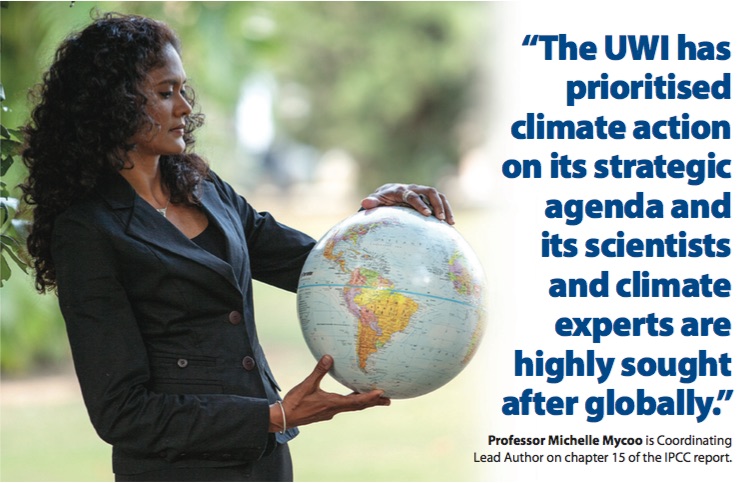
On February 28, 2022, the United Nations’ body for assessing the science related to climate change, the Intergovernmental Panel on Climate Change (IPCC), is expected to release its latest global report addressing impacts, adaptation and vulnerability related to climate change. Three scientists from The UWI are among the contributors to the chapters that comprise this critical international scientific report which comes on the heels of COP26 held in Glasgow in 2021.
The IPCC pools the top climate scientists around the globe to assess the state of the scientific literature on all aspects of climate change, its impacts, and society’s options for responding to it. Out of a total of 1,037 nominated experts, only 263 authors were selected to contribute to the report.
According to the IPCC, “this upcoming Sixth Assessment Report of Working Group II (AR6-WG2) assesses the impacts and risks of climate change, looking at ecosystems, biodiversity, and human communities at global and regional levels. Compared to the previous Working Group’s assessments, AR6-WG2 will include new information on different types of risks under various warming levels.”
The output of Working Group II will be made public on February 28 when the report is expected to be launched following the approval session with governments from around the world.
Professor Michelle Mycoo, an urban and regional planner and Professor in the Department of Geomatics Engineering and Land Management at The UWI St Augustine, is a Coordinating Lead Author on chapter 15 of the upcoming report, which focuses on the impacts, adaptation and vulnerability of small islands. In addition to Professor Mycoo, two other UWI scientists are also contributors. Dr Donovan Campbell, Senior Lecturer and Head of the Department of Geography and Geology at the Mona Campus, served as a Lead Author of chapter 15, and Dr Aidan Farrell, Senior Lecturer in Plant Physiology in the Department of Life Sciences at the St Augustine Campus, served as Lead Author for chapter 5, which addresses the impacts and risks of food, fibre, and other ecosystem products.
“Universities play a unique role in helping increase the scientific understanding of the changing climate and its impacts. Providing the best scientific research to tackle this challenge has long been a priority for The UWI,” said Professor Mycoo. “The UWI has prioritised climate action on its strategic agenda and its scientists and climate experts are highly sought after globally.”
The small islands of the Caribbean region face some of the most severe impacts of climate change. These include rising sea levels, increasingly intense precipitation, drought, a higher frequency of more intense storms and hurricanes, and destructive flooding.
AR6-WG2 chapter 15 covers small island states spanning the Caribbean, the Indian and Pacific Oceans. The peoples of these parts of the world have been impacted by devasting tropical cyclones which affect their livelihoods, health, and well-being. Fragile ecosystems such as coral reefs have suffered damage due to ocean warming and acidification. The impacts on fisheries and tourism account for a significant decline in economic revenue. Low-lying coastal settlements, including Caribbean cities, major infrastructure and economic assets are exposed and at risk to flooding. In Small Island Developing States, people are already taking action to cope with climate change.
The ceremony for the launch of the IPCC Working Group II Sixth Assessment Report on Impacts, Adaptation and Vulnerability is scheduled for the end of February 2022.
The chapter outline of the Working Group II contribution to The IPCC Sixth Assessment Report can be accessed at www.ipcc.ch/site/assets/uploads/2018/03/AR6_WGII_outlines_P46.pdf
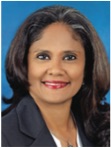
Professor Michelle Mycoo, Urban and Regional Planning specialist at the Department of Geomatics Engineering and Land Management in the Faculty of Engineering at The UWI, St. Augustine Campus, is a Coordinating Lead Author on the upcoming report and Chapter 15 on Small Islands. She is the first Caribbean woman to be a Coordinating Lead Author in the IPCC’s Working Group II. Her work is dedicated to pivotal interrelated issues such as land use planning, climate change adaptation, disaster risk reduction, water management and integrated coastal zone planning. Her expertise and contributions in addressing real world developmental challenges have been recognised by the European Union; the Canadian International Development Research Centre; and the UK Department for International Development. The multiple award winning Professor, is also a renowned author. In addition to her internationally acclaimed co-authored book, A Blue Urban Agenda: Adapting to Climate Change in the Coastal Cities of Caribbean and Pacific Small Island Developing States written in 2017, Professor Mycoo has over 100 research outputs. She is well recognised regionally and internationally for her technical expertise, and serves on global committees such as the International Science Council, Future Earth Coasts, UNESCO and UN-Habitat. She has delivered over 50 keynote addresses, invited presentations, lectures, and panel discussion contributions globally.
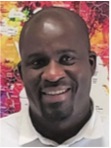
Dr Donovan Campbell is a Senior Lecturer and Head of the Department of Geography and Geology at The University of the West Indies, Mona Campus. His research is focused on climate change adaptation, biodiversity conservation, and food systems in Small Island Developing States (SIDS). He has expertise in the use of interdisciplinary approaches to explore the conditions that shape vulnerability and the capacity of communities to adapt to climate change. He is currently a Coordinating Lead Author for the Intergovernmental Platform on Biodiversity and Ecosystem Services (IPBES): global assessment of the interlinkages among biodiversity, water, food, and health (nexus assessment). He is one of 25 global experts selected by the United Nations to lead the third cycle of the World Oceans Assessment (2021-2025). He is a Lead Author for Chapter 15 of the IPCC’s Sixth Assessment Report, and served in a similar capacity for the Special Report on Climate Change and Land (published in 2019). He is actively involved in several large-scale collaborative and transdisciplinary research initiatives focused on climate change adaptation, biodiversity conservation, and sustainable development across the Caribbean.
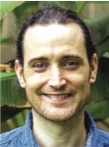
Dr Aidan Farrell is a Senior Lecturer in Plant Physiology, Department of Life Sciences at the St Augustine Campus. His research examines the mechanisms used by plants to grow and survive in a changing environment, and applies this understanding to help improve the sustainability and resilience of natural and agricultural systems. He also has a particular interest in the response of plants to abiotic factors such as temperature, nutrients and water stress. Dr Farrell served as a Lead Author on Chapter 5 for the upcoming Sixth Assessment Report of Working Group II, which addresses the impacts and risks of food, fibre, and other ecosystem products. He is also co-author among a global network of researchers who, in 2021, published the Global Stocktake of evidence on human adaptation to climate change in Nature Climate Change Journal for COP26.
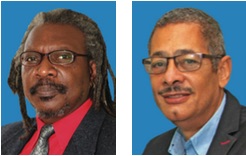
Dr Michael Sutherland, Head of the Department of Geomatics Engineering and Land Management in the Faculty of Engineering at the St Augustine Campus served as a Review Editor to chapter 1, which covers the point of departure and key concepts of the Report. Also from the St Augustine Campus, Professor John Agard, from the Department of Life Sciences, who currently co-chairs the UN’s 2023 Global Sustainable Development Report, added his expertise as a Review Editor for chapter 15.